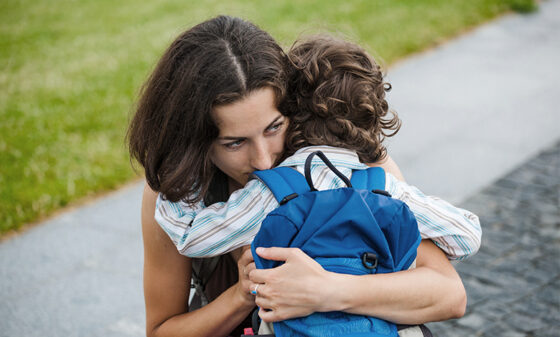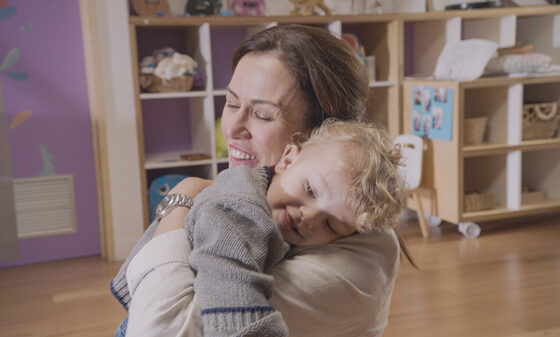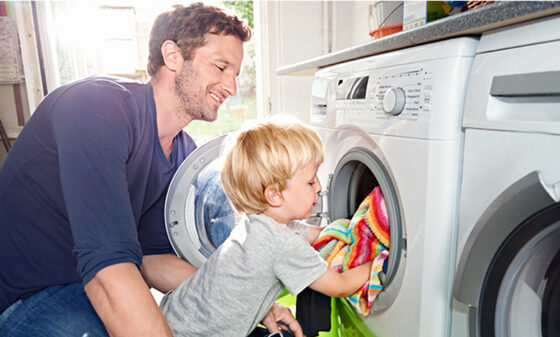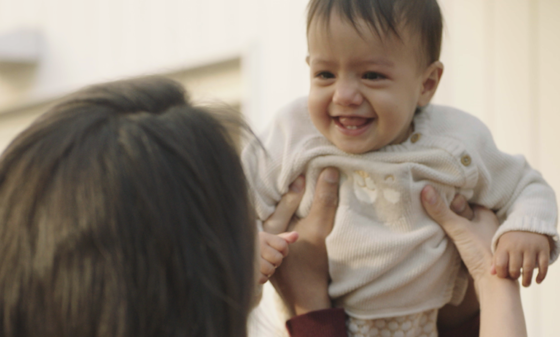Why do kids cry at day care drop-off?

Key takeaways
- Predictability has a big impact on children’s comfort levels
- You should get to know your child’s temperament
- Practise separating from your child in small blocks of time
Written by leading parenting expert, Dr Justin Coulson You know the moment. You’re dropping your child off to day care in the morning and their eyes well up with tears. It can be a firm tug on the heartstrings – and leave you wondering if this is normal behaviour. Well, the shortest answer is yes, it is. Our little ones cry because they miss us. It may seem so obvious that it doesn’t need to be said – but it’s important to acknowledge that their feelings are legitimate and appropriate.
What provokes this response?
Humans used to live as small groups in tribal communities. When children were born, they were with their mother – or another significant caregiver – all day, every day. Even today, newborns bond first with mum and then other significant family members. This consistent time with mum and other closely related others leads to the formation of an attachment hierarchy. The more closely someone is related to us, the more time we spend with them. And the more time spent with them (assuming they’re safe), the higher they are on the attachment hierarchy. In most families, this places mum at the top and then dad next. But someone like a childcare worker might be number 6 or 7 on the list. When an infant, toddler or pre-schooler is faced with their number one person (mum) leaving them in the care of someone who is at number seven (or worse, someone they’re unfamiliar with), they’ll often become fearful. This stranger anxiety develops in tandem with separation anxiety. They might feel unsafe. Biologically, they’re designed to be close to that trusted person at the top of their attachment hierarchy. As parents, we hope that our child’s discomfort will ease with consistent, high-quality care from the day care staff. This is why it’s important to find a facility that’s stable, secure and predictable. If there’s a high level of staff turnover or a lot of part-timers that step in and out, it’s might create a level of unpredictability that can be unsettling for a child.
Know your child’s temperament
Not every child will get upset at day care drop off. Some are perfectly happy to go and play, while other children hate the experience. It’s important to remember that children have different temperaments. Traditionally, psychologists describe an easy temperament, a slow–to–warm–up temperament and difficult temperament. Your child’s temperament is most likely to be on display in situations that are considered novel, which would definitely include starting out at day care.A child with an easy temperament isn’t going to be too fazed; they’re going to adapt fairly quickly. You’re unlikely to see tears with easy children.Children who are slow to warm up will want to stay close to their caregiver. But as they feel increasingly comfortable they’ll start to explore and eventually realise they don’t need to be so clingy. Finally, there’s children with difficult temperaments who hate anything unexpected. Drop off at day care will often make them feel insecure or unsafe. Their threshold for novelty is really low. Those are the ones who are most likely to find drop-off time challenging to deal with. Of course, there’s a continuum of responses within this difficult group as well. Most of the time, a child will cry when you drop them off – but within a minute or two they’ll playing with their friends in the sandpit. It’s worth noting that separation might even be more traumatic for us as parents than it is for the child. Where they might get on with things, we can be left ruminating for the rest of the day.
Mitigating responses
Our child’s emotional response depends on both internal factors – like their temperament – and external ones, like the childcare facility itself. All these things will impact drop-off behaviour. Plus, you need to account for your own level of stress. It’s all very well to say you need to be patient and loving but there’s the practical reality of needing to get out the door. You can pre-arm your child by explaining what will happen when you get to the day care centre. Tell them what you’re doing, why you’re doing it and how you’re going to do it. I’d also recommend letting your little one become familiar with the day care environment before you leave them there, because the more they understand, the less novel – and less frightening – it becomes. If your child is really struggling with attachment issues, then you can try and spend some more time with them during the drop-off transition. But eventually you do have to leave, so bring the carers in and have them engage your little one and divert their attention. Over the next few weeks you can work on spending less and less time with them as they get more comfortable with the environment. You can also work to practise separation at home. Let your child know, ‘I’m going to have a shower and I’ll be back in five minutes.’ Or, ‘I need to take the bins out, I’ll be back in two minutes.’ Let them get used to the idea that you’re a permanent fixture in their lives, and that when you do leave, you always come back.
If you're returning to work, let us help you return with confidence.
Our newsletter has tools, tips and expert advice to help ensure you and your child are ready.
Returning to work?
Sign-up to receive practical tips and advice for a smooth transition back to work.




